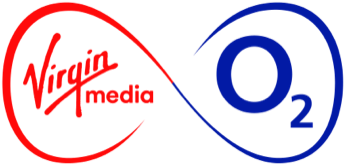O2’s Chief Executive Ronan Dunne explains how O2 is preparing for 4G in the wake of the most digitally connected event Britain has ever seen
2012 Olympic glory has shown Great Britain at its best. The sense of community, celebration and connectivity across our nation over the last three weeks has been unique and exceptional. Quite simply – and to echo a cast of thousands – it has brought a nation together.
But don’t just take my word for it – this has been evident through the behaviour of O2’s 23 million customers. Throughout the period of the Olympics, O2 customers sent just under 4 billion text messages, made 2.2 billion voice calls and used 3.3 billion kb of data. At the busiest hours in the Olympic Park, our network carried more traffic than any other major UK city. Data usage over the two weeks versus the same period in 2011 was up by nearly 80%.
This is hardly surprising if you think about the sheer enormity of social media attention and interactivity the games have driven – the BBC itself now prides itself on delivering the first ever ‘digital games’. As a network provider we knew it would be huge and we weren’t wrong. Our £50 million network investment and the construction of the O2 Olympic Management Centre in central London were necessary to give our customers the service they needed to simultaneously celebrate our 65 Olympic medals using their mobiles.
Sadly the Olympics may not return to Great Britain for another few decades, but in its wake it has left a digital legacy. The games have ignited an amplified passion for using mobile data services. The explosion in data use for social media, mobile apps and video streaming during the Olympics was not only exceptional, but may well signal the start of a whole new trend. We have spent the last two years predicting it, and investing and building our network ahead of time to support what our customers are demanding of us. Our next challenge is to predict and plan for the new world, the next digital revolution and of course, the trends of Rio 2016.
I’ve said before that as an industry we’re doing an excellent job of coping with the ever-increasing demand. O2 alone invests £1.5 million every day in its networks as part of our effort to ensure that customers continue to get great performance from their mobile devices. And the stage is now set for the introduction of a whole new technology.
The Government is in the process of planning for an auction of new mobile network spectrum (planned for early 2013), which will release the airwaves to power the next generation of mobile services for everyone in the UK. The introduction of 4G or LTE mobile technology will increase capacity, quality and speed for mobile users (we estimate that mobile broadband capacity will increase by 30 times from today’s levels). O2 has played a constructive and active part in the auction consultation process over the last two years with the aim of securing what is best for customers. As an industry, our commitment to getting the auction right will result in ensuring it delivers for customers, businesses and supports the UK’s drive for growth.
While we wait for the spectrum to be cleared for us to use, we have been busy laying the foundations for our future network, making often innovative decisions to do so. In June we announced that we have partnered with Vodafone to create one super national grid to deliver two competing networks and operating independent spectrum with the aim of achieving indoor 2G, 3G and (spectrum auction permitting) 4G services to 98% of the population much faster than either of us could achieve independently.
We’re also actively building a new set of O2 tariffs for our customers, which will be fit for the world of 4G. From our trials in central London, we know that 4G will unlock a whole range of new and exciting products and services. In truth, the full potential of 4G is as yet unexplored, but what we can be sure of is that it will allow for a whole new world of experiences, and not just make the current one a little bit better.
[library asset=3046]I like to loosely apply the analogy of motorway lanes. It’s widely acknowledged that simply adding a new lane to the M25 does little for traffic management. The extra capacity merely results in more cars, driving at the same speed and in the same direction as before. The Olympic lanes, however, offered something new and supplementary to the standard commuter journey – a superfast route to the greatest show on earth. The difference is our 4G lanes won’t be reserved for the elite and officials, but accessible for those who want to experience the highest level of digital services. And similarly consider the high-speed Olympic Javelin train – a premium service for a whole new level of railway experience.
We can chalk this up as a monumental time for Great Britain, not just in terms of our ability to be the world’s best sporting stage, but also in our readiness to reach new digital connectivity heights. We’re fighting fit to make Britain truly digital and with 4G set to be the lifeblood of the digital economy, we can’t get out of the starting blocks quick enough.
Read more about O2 and 4G at http://www.o2.co.uk/4g.
press enquiries
press enquiries
